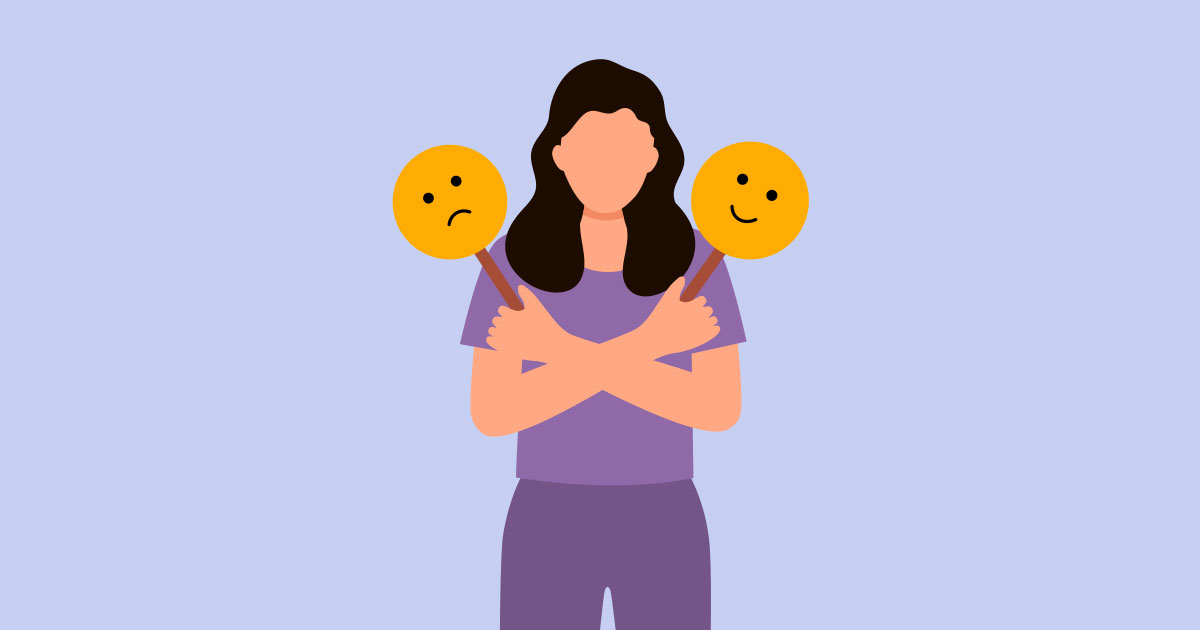ADHD or Bipolar Disorder? A Psychologist's Guide to Understanding the Differences
October 25, 2024 - Reading time: 7 minutes

"Something's different about her moods lately, doctor. The usual ADHD strategies just aren't working anymore."
These words from worried parents echo through my office more often than you might think. After spending nearly two decades helping families untangle the threads of ADHD and bipolar disorder, I've learned that these conditions can look remarkably similar – yet treating them requires completely different approaches.
Take Jenny(*), a teenager I met last month. She'd been managing her ADHD fairly well since third grade, but recently her mother noticed concerning changes. Jenny's energy wasn't just high – it was through the roof for weeks, followed by periods where she barely left her room. Her usual fidgeting had transformed into something more intense, more unpredictable.
This kind of story makes me think back to my early days of practice, when distinguishing between these conditions felt like solving a complex puzzle. Now, I see clear patterns that can help parents and doctors spot the difference.
*Name changed for privacy
The Rising Challenge
The statistics paint a striking picture:
- 10 million Americans live with Bipolar Disorder
- ADHD affects 5-8% of the population
- Up to 47% of people with ADHD may have co-occurring Bipolar Disorder in some regions
- The U.S. shows the highest co-occurrence rate at 12.64%
| Characteristic | ADHD | Bipolar |
|---|---|---|
| Prevalence | 5-8% | 1-3% |
| Age of Onset | Early childhood | Variable |
| Genetic Component | Strong | Strong |
| Primary Feature | Attention/Executive Function | Mood Regulation |
How They Overlap: A Clinical Perspective
In my practice, I often see patients struggling with symptoms that could point to either condition:
- Energy Levels and Focus
- ADHD: Consistent pattern of hyperactivity or inattention
- Bipolar: Episodes of intense energy during mania, followed by periods of depression
- Sleep Patterns
- ADHD: 25-50% experience sleep problems
- Bipolar: During mania, may function on minimal sleep without fatigue
- Project Management
- ADHD: Starts multiple projects due to interest-based attention
- Bipolar: Frantically begins projects during mania, abandons them during depression
Professional Testing Methods: My Clinical Toolbox
Throughout my years of practice, I've found certain diagnostic tools particularly helpful. Just last month, I worked with a patient who scored highly on the ADHD Self-Report Scale but showed patterns that made me dig deeper. Here's what I typically use in my office:
For suspected ADHD, we start with:
- The ASRS (Adult ADHD Self-Report Scale) - it's quick but surprisingly telling
- CAARS testing, which gives us a more detailed picture
- The Barkley test - especially good at picking up executive function issues I see in daily life
When bipolar symptoms are present, I pull from another set of tools:
- The Mood Disorder Questionnaire catches those subtle mood shifts
- YMRS helps track manic episodes
- The Bipolar Spectrum Scale - I've found this particularly helpful with teenagers who don't fit the typical adult presentation
A quick note from experience: no single test tells the whole story. I remember one patient whose test results seemed straightforward until we had a longer conversation about their family history. That's why I always combine these tools with thorough clinical interviews and family background checks.
Risk Factors and Co-occurring Conditions
Both conditions share increased risks for:
| Condition | ADHD Rate | Bipolar Rate |
|---|---|---|
| Eating Disorders | 4.2% | 14% |
| Substance Use | 25% | 41-60% |
| OCD | 30% | 11-21% |
Take-Home Message
As I tell my patients, understanding these differences isn't just about getting the right diagnosis – it's about opening doors to the right treatment. If you recognize these symptoms in yourself or someone you love, seeking professional evaluation is the first step toward better management.
Remember: Both conditions are treatable, and with proper diagnosis and support, people with ADHD, Bipolar Disorder, or both can lead fulfilling lives.
Need to talk to someone? Contact your local mental health professional or in the US, call the National Mental Health Hotline at 988 for immediate support.

